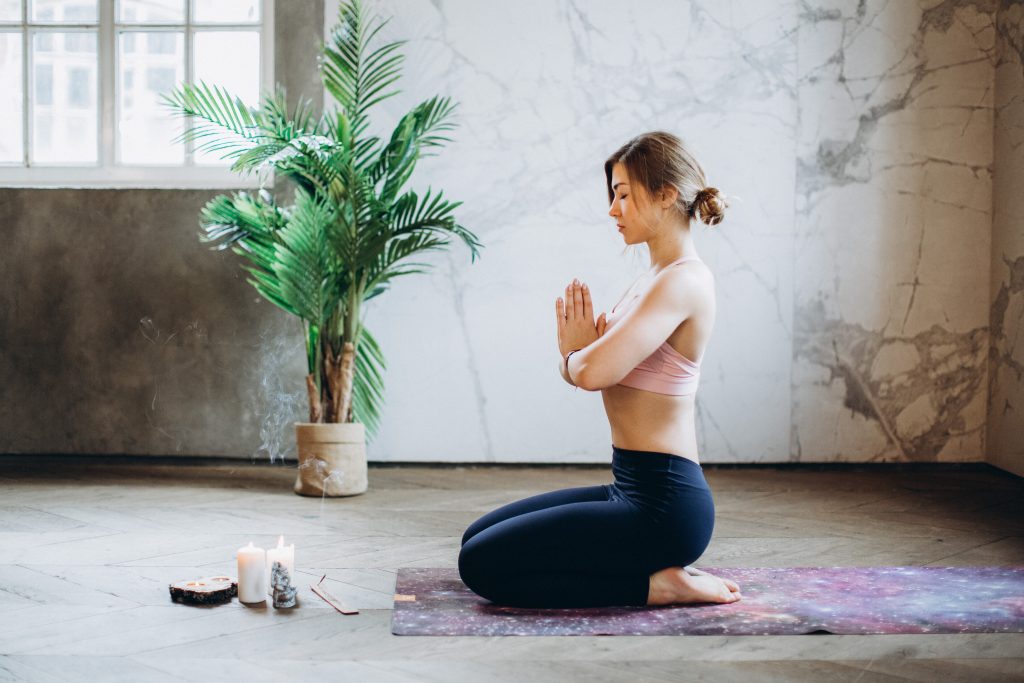Explore the incredible benefits of specific yoga styles for postpartum recovery.
Discovering the Benefits of Specific Yoga Styles Postpartum
Congratulations! You’ve officially embarked on your postpartum journey. As you navigate this new chapter in your life, it’s important to prioritize self-care and find ways to nurture your body and mind. One incredible tool that can support your postpartum recovery is yoga. In this article, we’ll explore the benefits of specific yoga styles that are perfectly suited to help you navigate this transformative period.
Understanding Postpartum Body Changes

The first step in embracing the benefits of postpartum yoga is to understand the changes your body undergoes after childbirth. It’s like your body put on its superhero cape and accomplished an incredible feat, bringing new life into the world! However, along with this amazing accomplishment comes some physical changes that are entirely unique to the postpartum period.
During pregnancy and delivery, your body goes through a remarkable process of transformation. From the moment of conception to the moment of birth, your body adapts and changes to accommodate the growing life inside you. As your baby grows, your core muscles stretch and weaken to make room for the expanding uterus. This weakening of the core muscles can lead to postpartum issues such as diastasis recti, where the abdominal muscles separate, causing a bulge in the midsection.
Additionally, the weight of the baby and the changes in your center of gravity can cause your pelvis to become misaligned. This misalignment can lead to discomfort, pain, and difficulty in performing daily activities. Postpartum yoga can be a powerful tool in realigning the pelvis, relieving pain, and restoring balance to your body.
Furthermore, the physical demands of pregnancy and childbirth can leave your muscles feeling tight and tense. The constant strain on your body, coupled with the hormonal changes, can create a sense of overall muscle tightness. Postpartum yoga can help release this tension by incorporating gentle stretches and movements that target specific muscle groups, promoting relaxation and flexibility.
Physical Changes After Childbirth
Your body has gone through a remarkable process during pregnancy and delivery. You may experience changes such as weakened core muscles, a misaligned pelvis, or general muscle tightness. Postpartum yoga can help address these issues by gently strengthening your core, promoting alignment, and relieving muscle tension.
One of the most common physical changes after childbirth is diastasis recti, which occurs when the abdominal muscles separate. This condition can cause a bulge in the midsection and weaken the core. Postpartum yoga focuses on strengthening the deep core muscles, including the transverse abdominis, to help heal diastasis recti and restore a strong and stable core.
In addition to diastasis recti, many women experience pelvic floor issues after childbirth. The pelvic floor muscles, which support the bladder, uterus, and rectum, can become weakened or stretched during pregnancy and delivery. Postpartum yoga incorporates specific exercises, such as kegels and pelvic tilts, to help strengthen and tone the pelvic floor muscles, improving bladder control and overall pelvic health.
Emotional and Mental Changes Postpartum
Let’s not forget about the emotional and mental changes that accompany the postpartum period. Sleep deprivation, hormonal fluctuations, and the demands of caring for a newborn can take a toll on your emotional well-being. Yoga can provide a much-needed mental escape, allowing you to reconnect with yourself and find moments of peace amidst the chaos.
Practicing yoga postpartum not only benefits your physical body but also supports your mental and emotional well-being. The deep breathing techniques and mindfulness practices incorporated in postpartum yoga help reduce stress, anxiety, and depression. By focusing on your breath and being present in the moment, you can cultivate a sense of calm and inner peace, even in the midst of the challenges that come with new motherhood.
Furthermore, postpartum yoga provides an opportunity for self-care and self-reflection. As a new mother, it’s easy to get caught up in the demands of caring for your baby and forget to take care of yourself. By dedicating time to practice yoga, you are prioritizing your own well-being and giving yourself permission to nurture your body, mind, and spirit.
Introduction to Yoga and Its Benefits
Before delving into specific styles of postpartum yoga, let’s take a moment to understand the basics of yoga and its many benefits.
Yoga is an ancient practice that originated in India thousands of years ago. It is not just about bending yourself into pretzel-like poses; it’s a holistic practice that combines movement, breath, and mindfulness. Through yoga, you cultivate body awareness, improve flexibility and strength, and enhance your overall well-being.
The word “yoga” comes from the Sanskrit word “yuj,” which means to unite or join. It is a practice that aims to unite the mind, body, and spirit, creating a sense of harmony and balance within oneself. It is often described as a journey of self-discovery and self-transformation.
The Basics of Yoga
Yoga encompasses a wide range of practices, including physical postures (asanas), breathing exercises (pranayama), meditation, and ethical principles. It is a comprehensive system that addresses not only the physical body but also the mind and emotions.
Asanas, or yoga poses, are one of the most well-known aspects of yoga. They help to stretch and strengthen the muscles, improve flexibility, and promote proper alignment of the body. Each asana has specific benefits and can be modified to suit individual needs and abilities.
Pranayama, or breath control, is another important component of yoga. By consciously regulating the breath, you can calm the mind, increase energy levels, and promote relaxation. It is believed that the breath is a bridge between the body and the mind, and by working with the breath, you can influence your mental and emotional state.
Meditation is a practice that involves focusing the mind and cultivating a state of inner stillness and awareness. It can help to reduce stress, improve concentration, and promote a sense of peace and tranquility. There are various meditation techniques, ranging from simple breath awareness to more advanced practices.
In addition to the physical and mental benefits, yoga also encompasses ethical principles known as the Yamas and Niyamas. These principles guide practitioners to live a virtuous and ethical life, promoting kindness, honesty, self-discipline, and contentment.
General Health Benefits of Yoga
Research has shown that regular yoga practice offers a myriad of health benefits, both physical and mental. One of the most well-known benefits is stress reduction. By practicing yoga, you can activate the relaxation response in your body, which helps to counteract the effects of chronic stress. This can lead to improved mental well-being and a greater sense of calm and peace.
Yoga has also been found to improve sleep quality. By practicing gentle yoga poses and relaxation techniques before bed, you can promote relaxation and prepare your body for a restful night’s sleep. This can be particularly beneficial for new parents who may be experiencing sleep disturbances due to the demands of caring for a newborn.
In addition, yoga can increase energy levels. Through the practice of asanas and pranayama, you can stimulate the flow of energy in your body, leaving you feeling more invigorated and revitalized. This can be especially beneficial for new parents who may be experiencing fatigue and exhaustion.
Furthermore, yoga can enhance mental clarity and focus. By practicing mindfulness and meditation, you can train your mind to be more present and attentive, improving your ability to concentrate and make clear decisions. This can be particularly helpful for new parents who may be juggling multiple responsibilities and tasks.
Overall, the benefits of yoga are vast and far-reaching. Whether you are a new parent looking to regain strength and flexibility after childbirth or simply seeking a way to reduce stress and improve your overall well-being, yoga can be a valuable tool on your journey to optimal health.
Yoga Styles Suitable for Postpartum Recovery
Now that we have a solid foundation of knowledge, let’s dive into yoga styles that are particularly beneficial for your postpartum recovery.
Hatha Yoga for Gentle Recovery
Hatha yoga is a gentle and slow-paced style that focuses on breathing exercises and foundational postures. It’s perfect for new moms who want to ease back into exercise after childbirth. Hatha yoga helps rebuild core strength, improve flexibility, and release tension.
Restorative Yoga for Relaxation
When you’re a new parent, relaxation may feel like a foreign concept. However, restorative yoga can make it a reality. This style emphasizes deep relaxation and rejuvenation, allowing you to recharge both physically and mentally. Through supported poses and the use of props, restorative yoga encourages deep rest and replenishment.
Kundalini Yoga for Energy Balance
If you’re feeling depleted and in need of an energy boost, Kundalini yoga may be just what the doctor ordered. This dynamic style combines postures, breathwork, chanting, and meditation to awaken your dormant energy and restore balance. Kundalini yoga is like pressing the reset button on your energy levels, helping you feel revitalized and ready to tackle the challenges of new parenthood.
Safety Measures for Postpartum Yoga Practice
While postpartum yoga is incredibly beneficial, it’s essential to approach it with care and respect for your body’s needs.
Listening to Your Body
As a new mom, your body may have unique considerations and limitations. Be sure to listen to your body and honor its needs during your yoga practice. If something doesn’t feel right, modify the pose or take a break. Remember, this is your personal journey, and there’s no rush to push yourself.
Importance of Professional Guidance
Working with a qualified yoga instructor who specializes in postpartum recovery can be immensely helpful. They can guide you through safe and effective sequences, provide modifications, and ensure that you’re practicing in a way that best supports your healing process.
Incorporating Yoga into Your Postpartum Routine
Now that you’re armed with knowledge and enthusiasm, it’s time to integrate yoga into your postpartum routine.

Finding the Right Time for Yoga
With a newborn, finding time for yourself might seem like an impossible task. However, carving out even a few minutes each day for your yoga practice can be incredibly beneficial. Whether it’s during your baby’s nap time or with the support of a helpful partner or family member, find a time that works for you.
Creating a Comfortable Yoga Space at Home
Creating a dedicated space for your yoga practice can make it easier to incorporate into your daily routine. Find a quiet corner in your home, lay out a mat, light some candles, and create a serene environment that inspires your practice. This sacred space is yours to nurture your mind, body, and spirit.
Conclusion
Your postpartum journey is unique and transformative, filled with both challenges and incredible moments. Through the practice of postpartum yoga, you can embrace the physical and emotional changes, prioritize self-care, and find balance amidst the beautiful chaos. Whether you choose gentle Hatha, relaxing restorative, or energizing Kundalini yoga, remember to listen to your body, seek professional guidance, and create a sacred space for your practice. Cheers to this new chapter and to the many benefits that postpartum yoga can bring!



